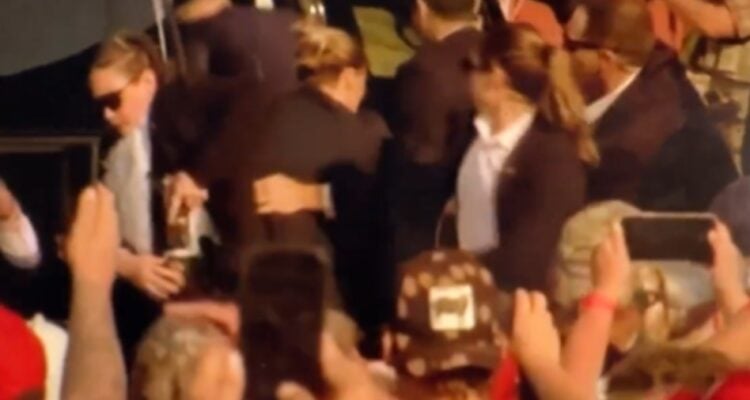The Secret Service has been badly broken by years of politicization.
By Daniel Greenfield, Frontpage Magazine
When Biden picked Kim Cheatle, who had been on his security detail as VP, to head the Secret Service, the organization’s chief missions became DEI and Biden coverups.
The Secret Service pledged to bring the number of women serving up to 30%. While female agents are valuable in certain settings and for certain protectees, this did not seem to be a good fit with Trump who needed to be quickly pushed down, secured, and protected.
https://twitter.com/i/status/1812312136305045914
CBS News Report reveals what Secret Service Director Kimberly Cheatle has been focused on: diversity hires pic.twitter.com/IoKnY4uj6M
— Matt Batzel (@MattBatzel) July 14, 2024
The Secret Service did however get busy covering up multiple attacks by Biden’s dog on its own personnel, including deleting video footage of such an attack.
Dan Bongino, who was a former Secret Service agent, stated that, “I want to repeat, and can absolutely confirm, the USSS Director Kim Cheatle has repeatedly turned down requests for a larger security footprint around President Trump. Despite knowing the threat level is catastrophic.”
Multiple individuals saw the shooter, currently identified as Thomas Matthew Crooks, getting into position and climbing on top of a building.
While a Secret Service sniper reacted quickly enough once the firing began, by then one person was dead and former President Trump could have also been killed.
There are fundamental questions to be asked here.
The Biden family has a history of crossing personal and governmental interests with the personnel assigned to them, whether it’s medical or protection details, and Biden picked someone who had worked with him to head the Secret Service.
Once the Secret Service was tasked with also protecting his political opponent, a major conflict of interest arose, and former President Trump was wounded and nearly killed.
Like the FBI, the Secret Service has been badly broken by years of politicization.
Earlier this year there was a petition from within the Secret Service warning of a crisis within the organization.
The document “flags concerns about ‘a number of recent Secret Service incidents indicative of inadequate training,’ a double standard in disciplinary actions, and a vulnerability ‘to potential insider threats’ that could pose a risk to U.S. national security.”
The risk seems to have arrived.
The Secret Service denied full protection to a former president and party nominee, leading to an assassination attempt that nearly succeeded. Was it a massive failure or a near success?




